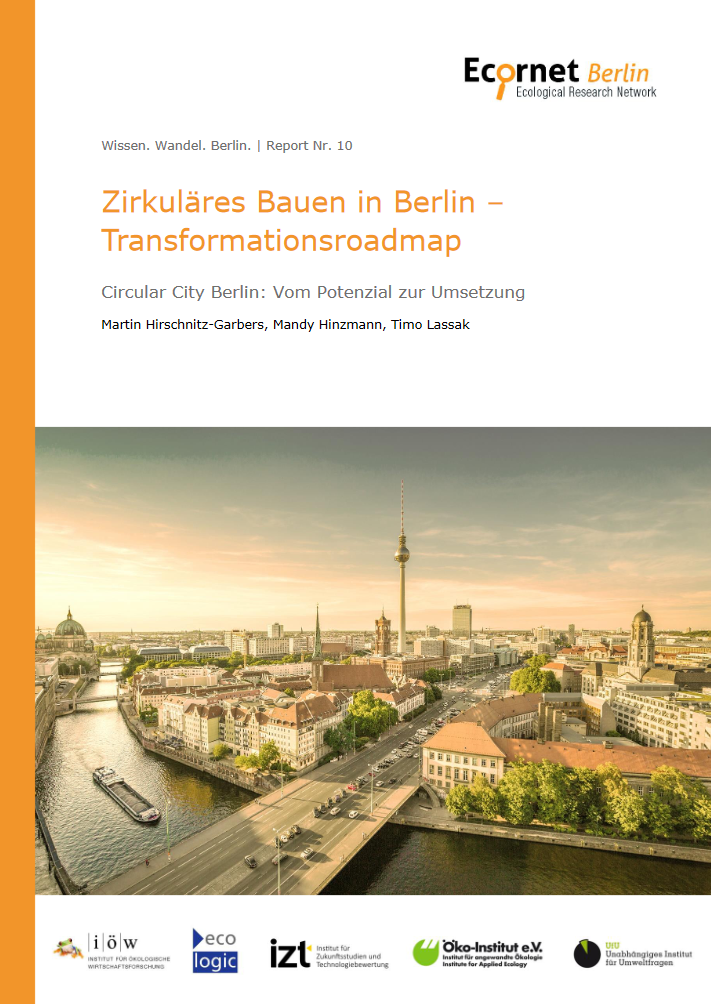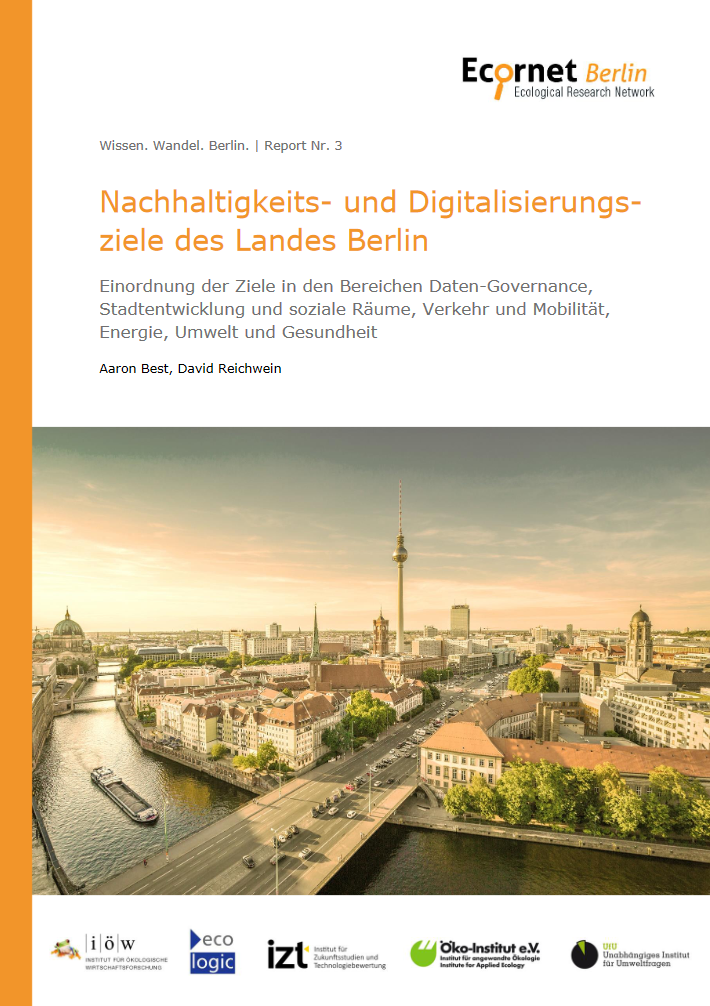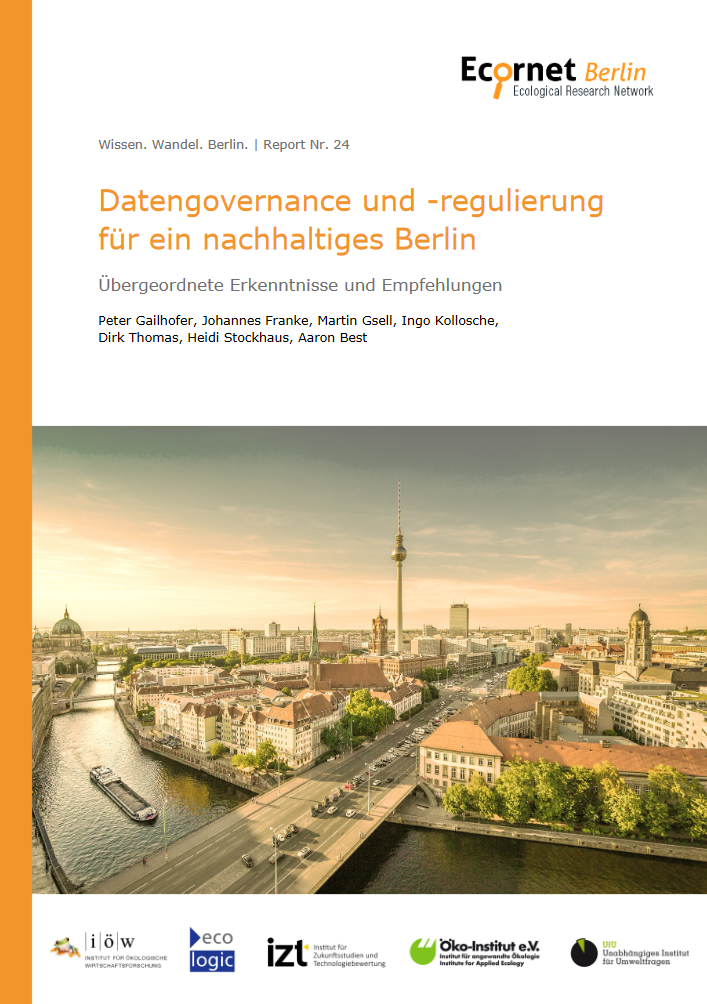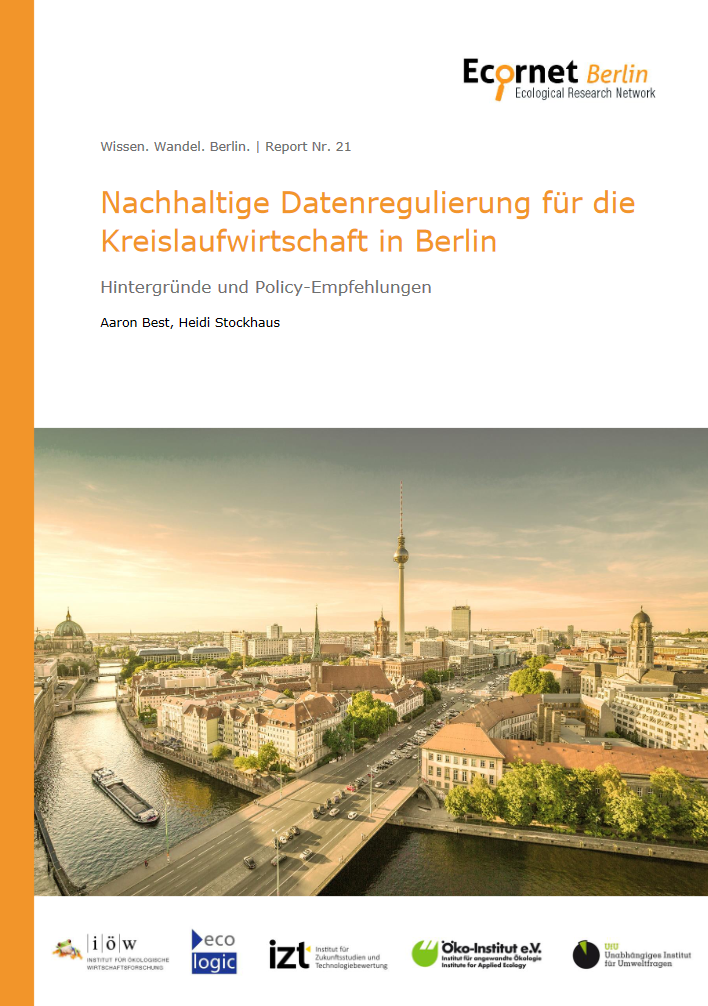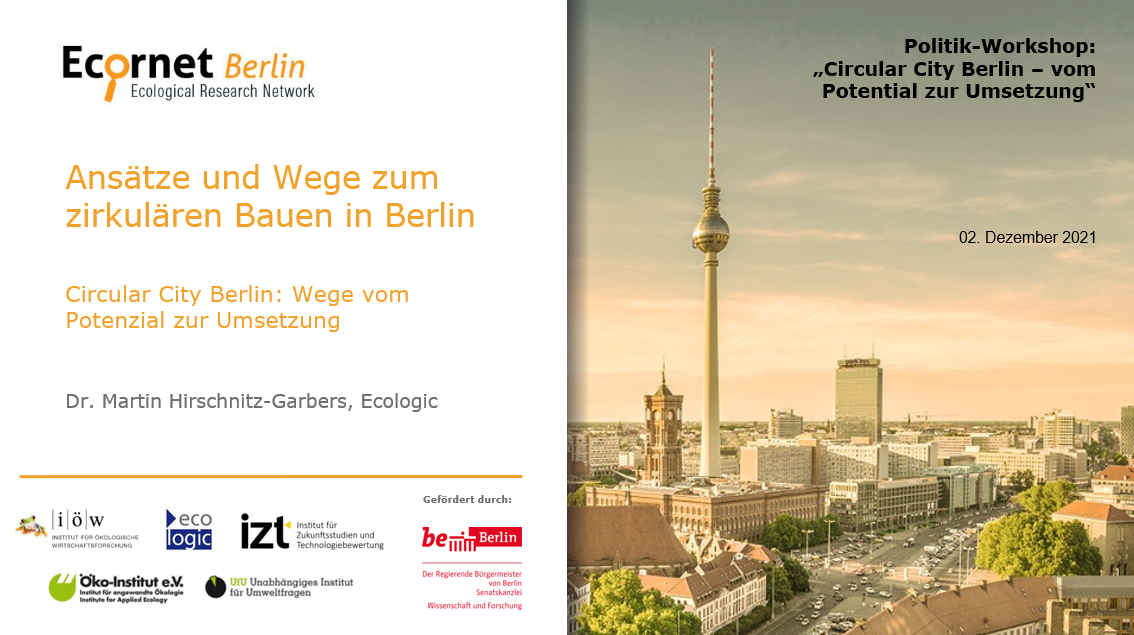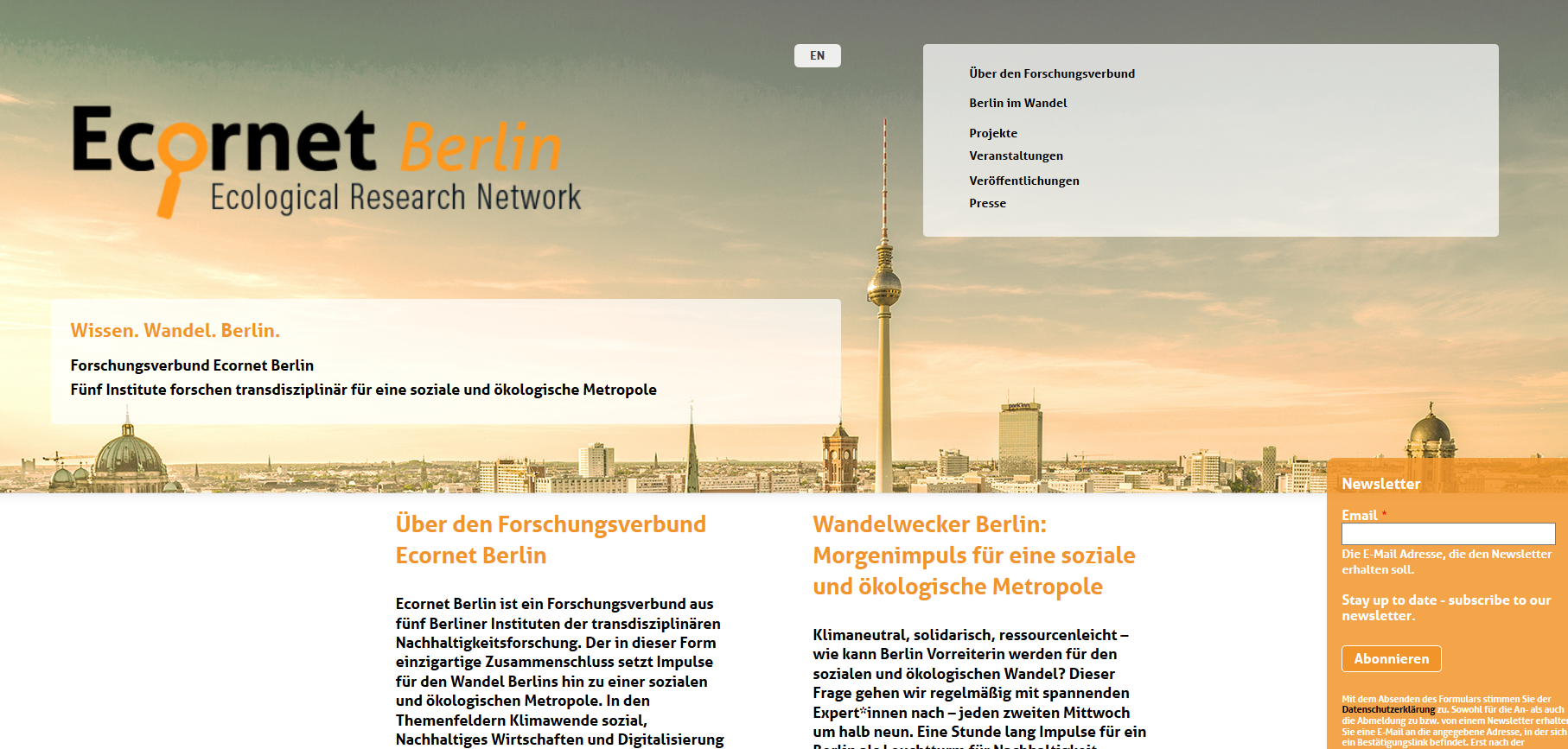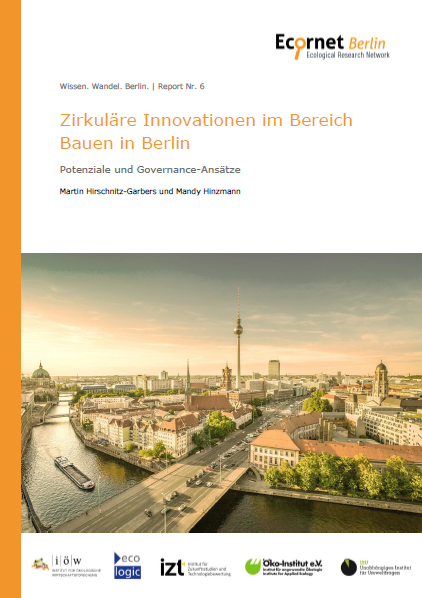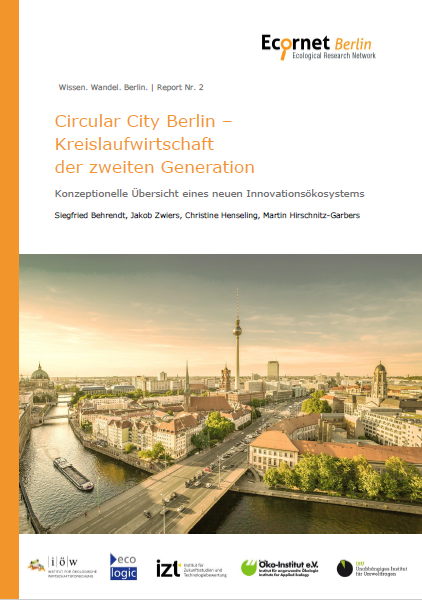The project "Data Governance and Regulation for a Sustainable Berlin" examined what forms of data regulation are possible and necessary at city level in Berlin to ensure that data-driven services, products and platforms are developed and used to meet social and environmental sustainability goals.
To this end, the project explored the following questions:
- Which of Berlin’s sustainability and development goals in the areas of mobility and transport, municipal infrastructure, health and regional business can be advanced through the collection, provision and use of data? Where are the risks?
- What are the needs for data provision, access and use? What requirements for data governance and regulation should be established in specific contexts – are, for example, open data-regulations or data property rights preferable?
- What regulatory options for data and its use in the social and environmental transformation are recommended for Berlin?
Principles of sustainable data for an environmentally sustainable and socially just Berlin
The project team took a thorough look at the Berlin digitalization landscape to identify the potential and challenges together with stakeholders from administration, the private sector and civil society. It analysed under which regulatory conditions, local and sustainable business models can prevail. Together with the stakeholders involved, principles of sustainable data for an environmentally sustainable and socially just Berlin were developed, along with policy options for sustainable data regulation.
In the project "Knowledge. Transformation. Berlin.", the Ecornet Berlin research network pursued the goal of expanding Berlin's pioneering role in innovative approaches for a liveable, climate-neutral and resource-efficient city. Therefore, the research network focused on the existing strengths and diversity of Berlin, but also on the existing ecological and social challenges. The goal was to expand Berlin's pioneering role in the development of innovative approaches in an innovative way. To this end, the associated institutes worked on several projects in the thematic fields of social climate transformation, sustainable economies and digitalization.




